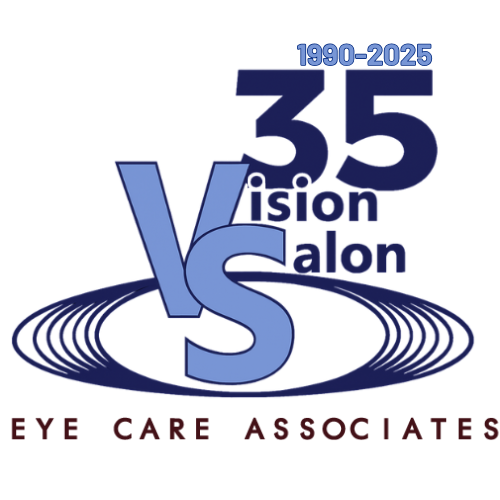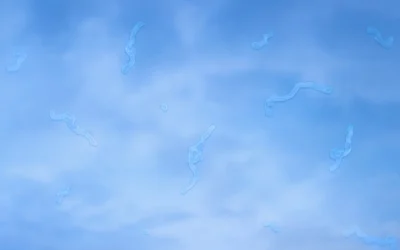Children are growing up in a digital world that has dramatically changed the way they learn and play. Unfortunately, this also means that their eyesight is at greater risk for progressive myopia—a condition in which nearsightedness increases over time. So, what exactly is progressive myopia, and how does it affect children?
In this blog, we discuss the impact of progressive myopia on children, common causes, and the importance of early myopia management.
What is progressive myopia?
Progressive myopia (also known as degenerative myopia) is an eye condition where the natural shape of the eyeball changes with age, and nearsightedness worsens rapidly over time. This condition causes light to focus on a point in front of the retina instead of directly on it, which makes distant objects appear blurry while close-up objects look clear.
Progressive myopia usually begins in early childhood and continues to get worse as the child grows. It may even progress into adolescence and young adulthood without proper treatment.
Signs of progressive myopia
The most common symptom of progressive myopia is blurred vision when looking at distant objects like street signs or TV screens. Other signs include:
- Frequent eye strain
- Headaches
- Difficulty seeing in low-light conditions
- Squinting
If your child is experiencing any of these symptoms, it’s important to schedule an appointment with an eye doctor as soon as possible for a comprehensive eye exam.
Common causes of progressive myopia
The most common cause of progressive myopia is extended exposure to near objects such as books, computer screens, or phones. This type of close work strains the eyes, which can cause them to elongate over time. In addition to extended close work, other factors such as genetics or environmental conditions may also contribute to this condition.
What are the risks of progressive myopia?
The primary concern with progressive myopia is that it can lead to more severe eye issues such as retinal detachment, glaucoma, cataracts, and macular degeneration. All these problems can cause permanent vision damage or even blindness if not treated promptly.
In addition, when children become severely nearsighted at an early age, they may have difficulty participating in certain activities that require good eyesight. This includes sports or any other activity where clear vision would be beneficial.
Finally, having progressive myopia also increases the risk of complications during eye surgery since these procedures become more difficult as one’s eyesight worsens.
Treating progressive myopia
The best way to treat progressive myopia is to catch it early on and slow its progression. Preventative measures, such as increasing lighting in your child’s environment or encouraging them to take regular breaks from screen use, can help to delay myopia progression.
Wearing glasses or contact lenses can also help correct any existing nearsightedness and reduce strain on the eyes. In extreme cases, laser surgery may be recommended to reshape the cornea and prevent further deterioration of vision.
Our eye doctors at Vision Salon Eye Care Associates in Blue Island provide a range of myopia management treatment options for kids and teens. Our highly skilled team can help you determine the best method for your child based on their needs, lifestyle, age, and myopia levels.
Orthokeratology (ortho-k)
Orthokeratology is an FDA-approved, non-surgical treatment option that corrects myopia to reduce or eliminate the necessity for daytime use of glasses or contacts. While your child sleeps, ortho-k lenses gently reshape the curvature of their eyes, so they can see clearly during the day.
Low-dose atropine eye drops
Low-dose atropine eye drops slow down the progression of myopia by temporarily paralyzing some of the muscles inside the eyes. These drops are placed in the eyes every night before bed.
Multifocal contact lenses
Multifocal contact lenses are another great option for managing progressive myopia in children. These lenses are designed with multiple zones of focus that not only help your child see clearly at all distances but also help slow the progression of myopia. They offer better peripheral vision than standard contact lenses, so your child can see more comfortably, even when looking out of the corner of their eye.
MiSight contact lenses
MiSight is a daily single-use contact lens specifically designed to control myopia progression. They are the only FDA-approved treatment for slowing down the progression of myopia in children.
Visit our experts for personalized vision care
If you have any concerns about your child’s vision, don’t hesitate to schedule an appointment with our experts. With proper care, regular eye exams, and myopia management, your child can regain clear vision and reduce their risk of developing eye diseases!





